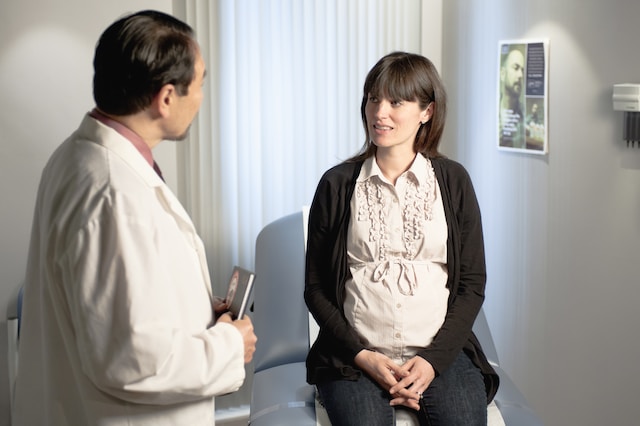Five Questions to Ask Your OBGYN About Venous Disease
During your next appointment, talk to your OBGYN about venous disease and how to prevent varicose veins and blood clots.
What are My Risk Factors for Venous Disease in Pregnancy?
Not all pregnant women develop venous disease, as genetics and lifestyle factors can play a role in increasing the risk. Other risk factors include obesity, a family history of venous disease, previous venous disease, a sedentary lifestyle (including being on bed rest during pregnancy), and multiple pregnancies.
Ask your OBGYN what they recommend for you to minimize or prevent venous disease. If they are not sure, call your vein specialists for help.
Can Venous Disease During Your Pregnancy Be Prevented?
The risks of venous disease can be lowered but not eliminated during pregnancy. Some of the suggested preventive measures include:
- The earlier in your pregnancy you begin conservative measures, the better.
- Regular exercise (like walking) promotes healthy venous blood flow
- Elevate your legs several times per day above the level of your heart to encourage healthy venous blood flow.
- When you are up on your feet wear medical-grade graduated compression stockings to improve circulation
- Maintaining a healthy weight and diet during and after your pregnancy
- Avoid heels and wear sensible, comfortable shoes
Not sure? Ask your OBGYN about which preventive measures are ideal for you during your pregnancy.
What Are the Signs of Venous Disease During Pregnancy?
The symptoms and signs of venous disease during pregnancy include heaviness, aching pain, cramping, swelling, itching, bulging veins, spider veins, and discoloration in the legs. These signs and symptoms can be cause for concern. Tell your OB/GYN should you have concerns.
If you notice any sudden onset of shortness of breath, chest discomfort, or rapid heartbeat, you should go to the nearest emergency room, as these can be signs of a pulmonary embolism, which is a blood clot in the lungs.
What Venous Treatments Are Safe During Pregnancy?
It is possible you might develop venous disease despite taking preventive measures, and in such cases, they might require medical intervention. Venous treatments available for the non-pregnant population include sclerotherapy injections, micro vein removal, and endovenous laser or radiofrequency treatment. It’s essential to note that these treatments are generally not recommended during pregnancy. Instead, the focus shifts to preventing venous disease from escalating by incorporating what we call our Better Veins for Life® principles, in addition to routine screening.
How Can I Manage Venous Disease Post-Pregnancy?
If you developed venous disease during pregnancy and already gave birth, it takes about 3 months for the body to normalize to a pre-pregnancy state. We advise evaluation by a vein specialist to diagnose and receive treatment recommendations for venous disease that persists after 12 weeks of postpartum healing. Treatment options for persistent or worsening varicose veins, spider veins, and leg swelling include conservative care options that were safe during your pregnancy. In addition, procedures such as venous ablation, sclerotherapy, or adhesive treatments treat the underlying cause of your problems and the damaged surface veins.










